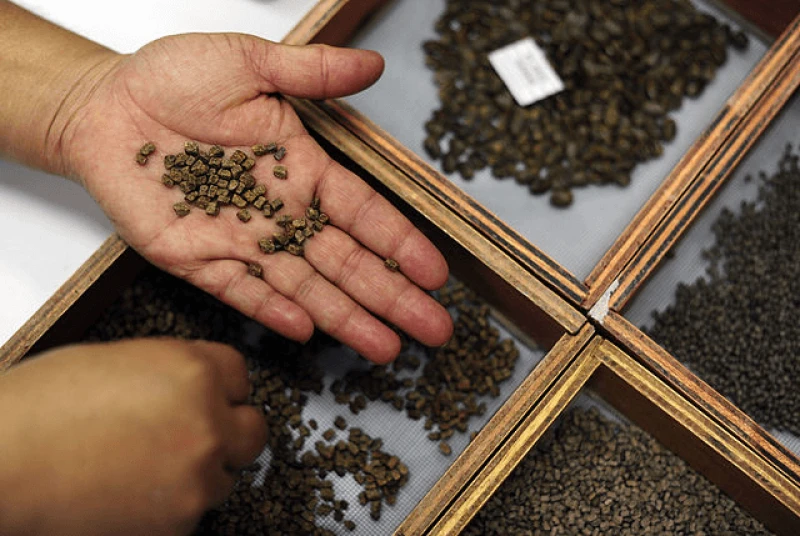‘Our living seed bank belongs to future generations’: Colorado MASA Seed Project collects and preserves climate-change-resistant crop varieties
‘Our living seed bank belongs to future generations’: Colorado MASA Seed Project collects and preserves climate-change-resistant crop varieties


“People are just beginning to learn more about not just who grows their food, but also which seeds do well as they adapt to inevitable climate changes,” said Laura Allard, operations manager at MASA Seed Foundation in Boulder.
Allard, along with Rich Pecoraro, who founded the MASA Seed Project initially and is its agricultural director, run this foundation that includes 24 acres of farmed land in east Boulder year-round. The mission of the foundation is to grow organic seeds that become part of a bio-regional seed bank.
“Our living seed bank belongs to future generations,” said Allard.
“The work being done at MASA is so important for supporting local gardens and farms,” said [Professor Nolan] Kane. “Rich and others at MASA are focused on adapting plants to our unusual local conditions and providing seeds and plants that will do well here.”
He explains that the adaptation means that the seeds are harvested only from the plants that are thriving in the dry air, strong winds, high altitude, clay soil, and other specific conditions such as resistance to local insects and diseases. “Ultimately that improves local food production, food security, and food quality, as well as improving the local agricultural economy,” Kane explained.
This is an excerpt. Read the original post here

 | Videos | More... |

Video: Nuclear energy will destroy us? Global warming is an existential threat? Chemicals are massacring bees? Donate to the Green Industrial Complex!
 | Bees & Pollinators | More... |

GLP podcast: Science journalism is a mess. Here’s how to fix it

Mosquito massacre: Can we safely tackle malaria with a CRISPR gene drive?

Are we facing an ‘Insect Apocalypse’ caused by ‘intensive, industrial’ farming and agricultural chemicals? The media say yes; Science says ‘no’
 | Infographics | More... |

Infographic: Global regulatory and health research agencies on whether glyphosate causes cancer
 | GMO FAQs | More... |

Why is there controversy over GMO foods but not GMO drugs?

How are GMOs labeled around the world?

How does genetic engineering differ from conventional breeding?
 | GLP Profiles | More... |

Alex Jones: Right-wing conspiracy theorist stokes fear of GMOs, pesticides to sell ‘health supplements’




 Viewpoint — Fact checking MAHA mythmakers: How wellness influencers and RFK, Jr. undermine American science and health
Viewpoint — Fact checking MAHA mythmakers: How wellness influencers and RFK, Jr. undermine American science and health Viewpoint: Video — Big Solar is gobbling up productive agricultural land and hurting farmers yet providing little energy or sustainabilty gains
Viewpoint: Video — Big Solar is gobbling up productive agricultural land and hurting farmers yet providing little energy or sustainabilty gains Fighting deforestation with CO2: Biotechnology breakthrough creates sustainable palm oil alternative for cosmetics
Fighting deforestation with CO2: Biotechnology breakthrough creates sustainable palm oil alternative for cosmetics Trust issues: What happens when therapists use ChatGPT?
Trust issues: What happens when therapists use ChatGPT? 30-year-old tomato line shows genetic resistance to devastating virus
30-year-old tomato line shows genetic resistance to devastating virus California, Washington, Oregon forge immunization alliance to safeguard vaccine access against federal undermining
California, Washington, Oregon forge immunization alliance to safeguard vaccine access against federal undermining The free-range chicken dilemma: Better for birds, but with substantial costs
The free-range chicken dilemma: Better for birds, but with substantial costs ‘You have to treat the brain first’: Rethinking chronic pain with Sanjay Gupta
‘You have to treat the brain first’: Rethinking chronic pain with Sanjay Gupta
